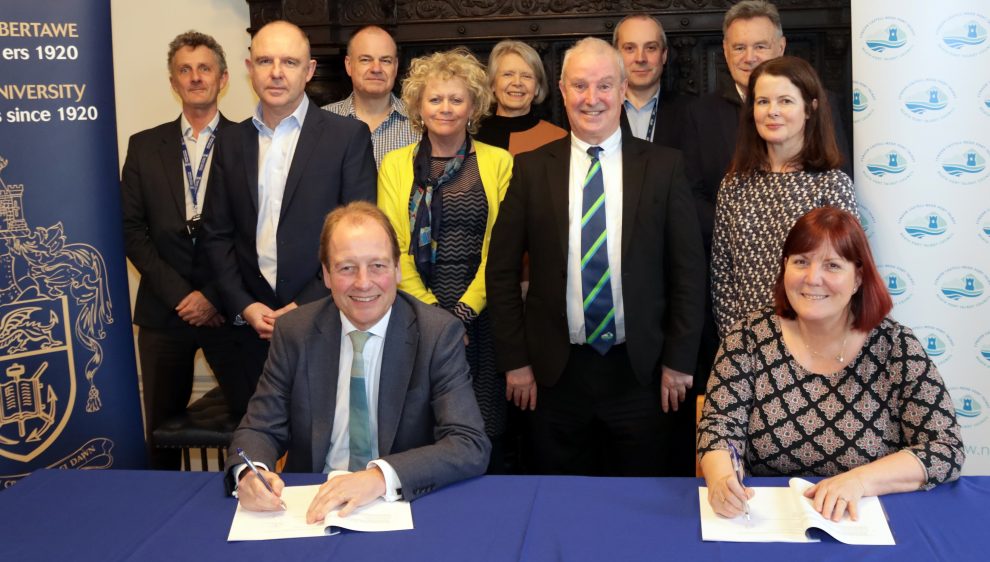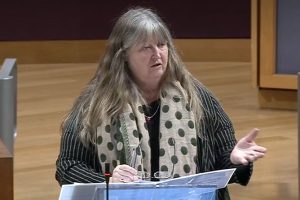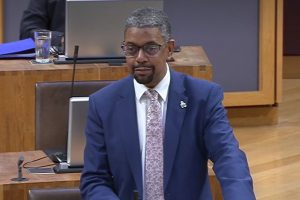Neath Port Talbot Council and Swansea University have signed a Memorandum of Understanding to help them work more closely on vital areas of common interest such as working effectively with industry and supporting the development of vital skills for the region.
A Memorandum of Understanding document was signed at Swansea University’s Singleton Abbey on Monday, February 19th, by Neath Port Talbot Council’s Chief Executive Karen Jones and Swansea University’s Vice-Chancellor Professor Paul Boyle.
The aim of the Memorandum of Understanding is to help both organisations explore working with other organisations to promote the health and wellbeing of local people.
Karen Jones said: “The signing of the Memorandum of Understanding is an opportunity to cement what is already a good relationship between the council and the university and both parties intend to continue working together to identify and explore collaboration opportunities and funding mechanisms to help make this area prosperous and an attractive place to invest, live and work.”
There will be a specific focus on the ongoing decarbonisation agenda and sustainable industry and on data sciences and digital innovation.
Swansea University Vice-Chancellor Professor Paul Boyle said: “Our University was founded more than a century ago to meet the needs of our local community and we are delighted to build on this legacy by strengthening our partnership with Neath Port Talbot Council.
“Through both this collaboration and our work with other local partners, we will seek to continue to support the development of skills and education in our region, and to contribute positively to its economic sustainability through our world-class research and innovation activity.”
Other important areas of common interest will also be education, and the labour market and in particular helping to boost employment and skills.
There will also be an emphasis on continuing to find ways to help improve an ageing population’s quality of life.

















